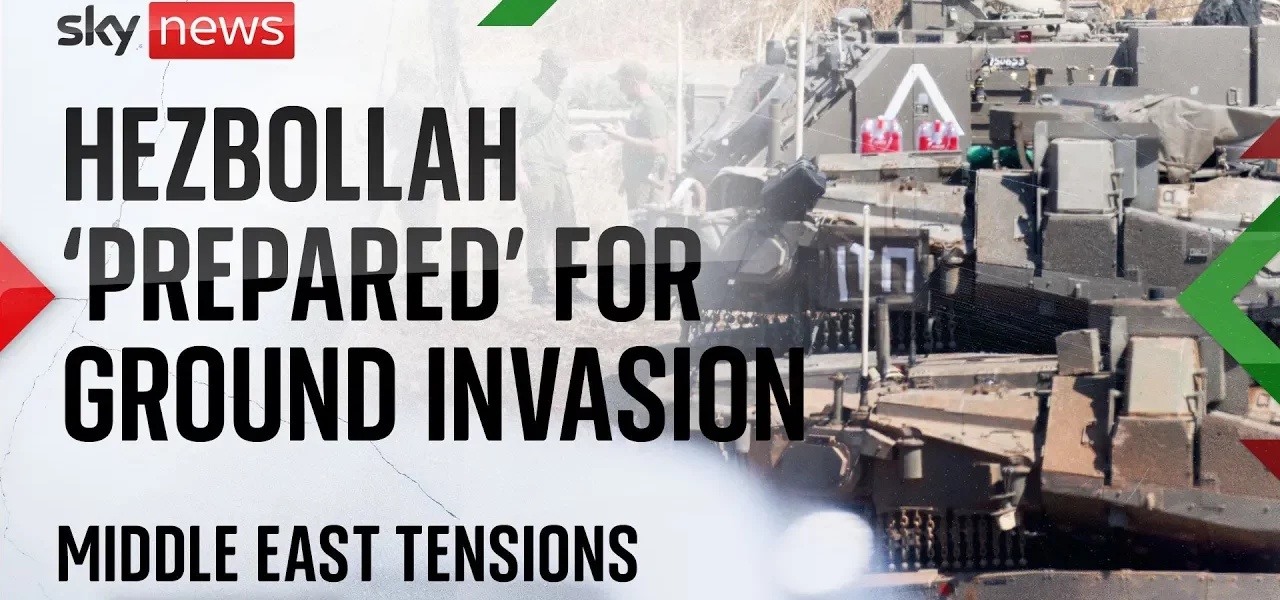Hezbollah’s Readiness for Ground Offensive Amid Israeli Tensions

As the conflict escalates between Hezbollah and Israel, the deputy chief of Hezbollah has publicly affirmed the group’s readiness for a prolonged struggle. With significant developments on both sides, the implications of this tension are profound for the region and beyond.
Introduction
The geopolitical landscape in the Middle East is currently fraught with tension as Hezbollah prepares for a potential ground offensive against Israeli forces. This escalation comes in the wake of significant losses for the militant group, including the death of its leader, Hassan Nasrallah. The situation has been exacerbated by Israeli military operations in Southern Lebanon, leading to warnings from Hezbollah regarding their readiness to engage in a long-term conflict. This article delves into the latest developments, implications for regional stability, and what the future may hold for both Hezbollah and Israel.
Latest Developments in the Conflict
The situation has evolved rapidly, with Hezbollah’s deputy chief, Naim Kasam, making a strong statement regarding their military capabilities and intentions. Below are key developments:
- Hezbollah’s readiness for a ground offensive in response to Israeli troop movements.
- Claims from the Israeli military regarding the elimination of Hamas leadership in Lebanon.
- Confirmation from the UN’s Palestinian refugee agency about the political activities of an employee, Fat Sherff, leading to administrative leave.
- Reports from the Popular Front for the Liberation of Palestine about the loss of three leaders in an Israeli attack.
- A humanitarian crisis in Lebanon with over 600,000 displaced individuals, as reported by Save the Children.
Hezbollah’s Military Stance
In a recent speech, Naim Kasam emphasized Hezbollah’s determination to continue its fight against Israel. Key points from his address include:
Commitment to the Cause
Kasam declared that Hezbollah’s support for Palestine and Lebanon remains unwavering, asserting that:
- The group is prepared for a long-term engagement.
- Victory is assured, drawing parallels to their previous confrontations with Israel, notably in 2006.
Military Capabilities
Despite recent setbacks, Kasam assured that Hezbollah’s military capabilities remain intact, stating:
- The group has alternative leadership structures in place.
- Hezbollah’s operational readiness has not been compromised.
Israeli Military Operations
The Israeli military has conducted several operations in Southern Lebanon, which have been described as small-scale special forces actions. These operations are part of a broader strategy aimed at:
- Disrupting Hezbollah’s operations and leadership.
- Gaining strategic advantages in the ongoing conflict.
- Demonstrating military might in the face of regional threats.
These actions have raised concerns about a potential ground invasion, prompting Hezbollah to enhance its defensive preparations.
Humanitarian Impact
The ongoing conflict has led to a significant humanitarian crisis in Lebanon, with various organizations reporting alarming statistics:
- Over 600,000 people have been displaced due to the fighting.
- Access to basic necessities such as food, water, and healthcare is increasingly limited.
- The potential for a larger-scale catastrophe looms as the situation deteriorates.
Organizations like Save the Children are sounding the alarm, urging for international support and intervention to alleviate the suffering of affected populations.
Conclusion
The conflict between Hezbollah and Israel is at a critical juncture, with both sides preparing for a potentially prolonged and intense engagement. As Hezbollah vows to continue its fight and Israel maintains its military operations, the situation remains precarious. The humanitarian implications are dire, necessitating urgent international attention. As we observe these developments, it is crucial to stay informed and advocate for peace and stability in the region. For further insights on related topics, consider reading our articles on Middle Eastern geopolitics and the impact of conflict on civilians.
“`




